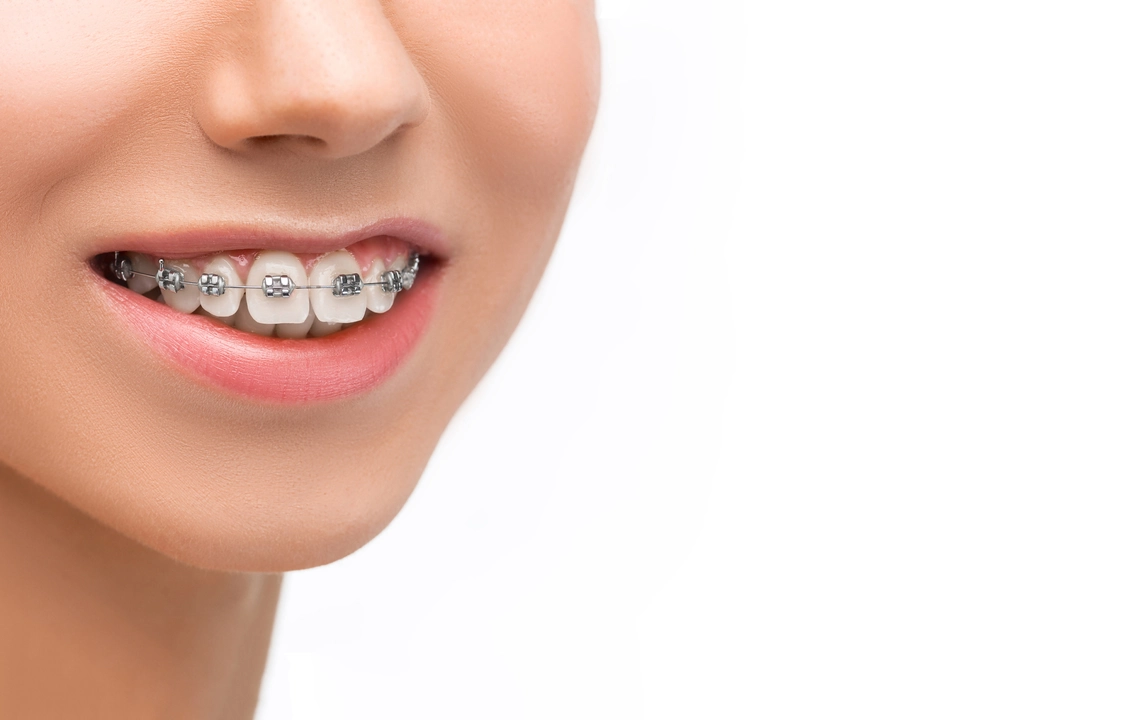Why Proper Prophylaxis is Essential for Orthodontic Patients
Orthodontic treatment is a significant investment in our oral health. To ensure the best results and avoid complications, it's essential to practice proper prophylaxis, or preventative care. As someone who has gone through the process of getting braces, I understand the importance of keeping them clean and effective. In this article, I will share my knowledge and personal experience to help you maintain excellent oral hygiene and get the most out of your orthodontic treatment.
Understanding the Risks: Plaque, Tartar, and Gingivitis
One of the primary concerns for orthodontic patients is the accumulation of plaque, a sticky film of bacteria that forms on our teeth. Braces provide more areas for plaque to hide and accumulate, making it even more critical to maintain proper oral hygiene. If plaque is not removed regularly, it can harden into tartar, which can only be removed by a dental professional.
If plaque and tartar are allowed to build up around braces, they can lead to gingivitis, an inflammation of the gums. Symptoms of gingivitis include red, swollen gums that bleed easily. If left untreated, gingivitis can progress to more severe gum disease, which can result in tooth loss and damage to the bone supporting your teeth. In addition, poor oral hygiene can prolong the orthodontic treatment process and even lead to staining or decay of your teeth.
Choosing the Right Oral Hygiene Tools
To effectively clean your teeth and braces, you'll need to select the appropriate oral hygiene tools. A soft-bristled toothbrush is essential, as it can gently clean around your braces without causing damage. An interdental brush, a small brush with a narrow tip, is also helpful for cleaning between the brackets and wires of your braces.
In addition to these tools, you'll need dental floss and a floss threader. A floss threader helps guide the floss under the archwire of your braces, allowing you to clean between your teeth effectively. Lastly, an oral irrigator, or water flosser, can be a beneficial addition to your oral hygiene routine, as it uses a concentrated stream of water to flush out debris and plaque from hard-to-reach areas.
Mastering the Proper Brushing Technique
Brushing your teeth with braces requires a bit more time and attention than before. It's essential to brush your teeth for at least two minutes, twice a day. Start by holding your toothbrush at a 45-degree angle to your gums and use small, circular motions to clean all surfaces of your teeth and braces. Don't forget to brush the chewing surfaces of your teeth, as well as the backsides and the area around your gumline.
It's also crucial to clean the brackets and wires of your braces. Gently brush each bracket, moving from top to bottom and side to side, to ensure all plaque and debris are removed. Be sure to brush the wires as well, working from one side of your mouth to the other.
Effective Flossing with Braces
Flossing can be more challenging with braces, but it's an essential part of your oral hygiene routine. To floss effectively, use a floss threader to guide the floss under the archwire of your braces. Gently slide the floss between your teeth, moving it up and down and around the base of each tooth to remove plaque and debris.
It's crucial to be patient and gentle while flossing, as braces can make it more difficult to maneuver the floss. Remember to floss between all your teeth, including those in the back of your mouth, and don't forget to floss around the brackets and wires of your braces as well.
Rinsing with an Antibacterial Mouthwash
Using an antibacterial mouthwash can be an excellent addition to your oral hygiene routine, as it can help kill bacteria, reduce plaque, and prevent gingivitis. To use, simply swish the mouthwash around your mouth for 30 seconds, then spit it out. It's essential to avoid swallowing the mouthwash, as it can cause nausea or other adverse effects. Be sure to choose a mouthwash that's specifically designed for orthodontic patients, as some mouthwashes can stain or discolor your braces.
Regular Dental Checkups and Cleanings
Even with excellent oral hygiene at home, it's crucial to maintain regular dental checkups and cleanings during your orthodontic treatment. Your dentist and dental hygienist can monitor your oral health, remove any tartar buildup, and address any issues that may arise during your treatment. In addition, they can provide personalized advice and guidance on maintaining proper oral hygiene with braces.
It's generally recommended to visit your dentist for a checkup and cleaning every six months, but your orthodontist may recommend more frequent visits depending on your individual needs and treatment progress.
Developing Healthy Habits for a Lifetime of Oral Health
Orthodontic treatment is an excellent opportunity to develop healthy oral hygiene habits that will benefit you for a lifetime. By maintaining proper prophylaxis during your treatment, you can ensure that your braces remain clean and effective, helping you achieve a beautiful, healthy smile.
Remember, consistency is key – make a commitment to brush, floss, and rinse every day, and attend regular dental checkups and cleanings. With dedication and perseverance, you can enjoy the full benefits of your orthodontic treatment and maintain a healthy, beautiful smile for years to come.

 Esophageal Cancer Risk from Chronic GERD: Key Red Flags You Can't Ignore
Esophageal Cancer Risk from Chronic GERD: Key Red Flags You Can't Ignore
 Blue Light and Eye Health: Screen Filters and Habits That Actually Work
Blue Light and Eye Health: Screen Filters and Habits That Actually Work
 Celebrex: What You Need to Know About This Arthritis & Pain Relief Medication
Celebrex: What You Need to Know About This Arthritis & Pain Relief Medication
 How Clavulanic Acid Revolutionizes Antibiotic Treatments for Resistant Infections
How Clavulanic Acid Revolutionizes Antibiotic Treatments for Resistant Infections
 Unlock the Power of Blessed Thistle: A Dietary Supplement for a Healthier You!
Unlock the Power of Blessed Thistle: A Dietary Supplement for a Healthier You!
Corey Jost
May 29, 2023 AT 13:29While the importance of prophylaxis for orthodontic patients is often touted, the reality is that many of the recommended practices are excessive.
The market for specialized toothbrushes and floss threaders has exploded, feeding a lucrative industry rather than addressing core dental health.
In fact, a simple soft-bristled toothbrush and regular flossing can achieve comparable plaque control when used correctly.
The emphasis on water flossers, for example, seems more like a sales pitch than a scientifically proven necessity.
Studies that claim superior outcomes with these gadgets frequently have conflicts of interest that go unnoticed by the average reader.
Moreover, the ideal brushing technique described in the article assumes a level of dexterity that many patients simply lack.
Expecting a teenager to spend two full minutes meticulously cleaning each bracket is unrealistic and may lead to frustration.
When patients inevitably miss spots, they may develop a false sense of failure that demotivates them from continuing treatment.
The article also glosses over the role of diet in plaque formation, implying that mechanical cleaning alone is sufficient.
Yet sugary snacks and frequent soda consumption can quickly overwhelm even the most diligent brushing regimen.
A holistic approach that includes dietary counseling would be more beneficial than an overreliance on tools.
Additionally, the suggestion to use antibacterial mouthwash specifically formulated for braces ignores the fact that many over‑the‑counter options are equally effective.
The distinction is rarely based on clinical evidence and more on branding.
Ultimately, patients should be encouraged to adopt realistic, sustainable habits rather than chasing every new product on the shelf.
By focusing on consistency and practicality, we can achieve healthy teeth without succumbing to unnecessary hype.
Nick Ward
June 10, 2023 AT 03:15I totally get how overwhelming it can feel, but taking it step by step really helps.
Keeping a simple routine works wonders :)
felix rochas
June 21, 2023 AT 17:02Don’t be fooled!!! The dental industry is a massive conspiracy!!! They push overpriced gadgets!!! Every “must‑have” product is a cash‑grab designed to line their pockets!!! Ignoring the simple truth that good oral hygiene has always been about consistency, not gimmicks!!!
inder kahlon
July 3, 2023 AT 06:49A floss threader with a flexible metal coil can glide under the archwire more easily than the plastic versions.
Dheeraj Mehta
July 14, 2023 AT 20:35Sticking to a consistent brushing schedule is like building a tiny super‑power for your smile 😊
Oliver Behr
July 26, 2023 AT 10:22In the UK we often recommend a single‑head electric brush for braces – it saves time!
Tiffany W
August 7, 2023 AT 00:09From a prophylactic standpoint, the utilization of adjunctive antimicrobial agents synergistically attenuates biofilm colonization on orthodontic appliances.
Rajeshwar N.
August 18, 2023 AT 13:55While specialized tools can enhance plaque removal, they are not indispensable; diligent technique remains the cornerstone.
Louis Antonio
August 30, 2023 AT 03:42Honestly, all that hype about special tools is just a marketing gimmick.
Kyle Salisbury
September 10, 2023 AT 17:29British patients tend to schedule dental check‑ups every four months during orthodontic treatment, which can catch issues early.
Angie Robinson
September 22, 2023 AT 07:15Your post overlooks the statistical variance in plaque indices across age groups, leading to a one‑size‑fits‑all recommendation.
Emmons Kimery
October 3, 2023 AT 21:02Great points! 🌟 Consistency is key, and sharing experiences can uplift the community 🙌
Mimi Saki
October 15, 2023 AT 10:49Keep up the good work! Your dedication will pay off 😁
Subramaniam Sankaranarayanan
October 27, 2023 AT 00:35Clinically, the pH threshold for demineralization is well established at 5.5, thus any acidic exposure between brackets, even transiently, must be mitigated with neutralizing rinses.
Kylie Holmes
November 1, 2023 AT 18:29You’ve got this! Every day you brush brings you one step closer to that perfect grin!
Jennifer Wees-Schkade
November 6, 2023 AT 09:35Make sure to replace your toothbrush head every three months; a worn bristle can damage brackets and reduce cleaning efficiency.